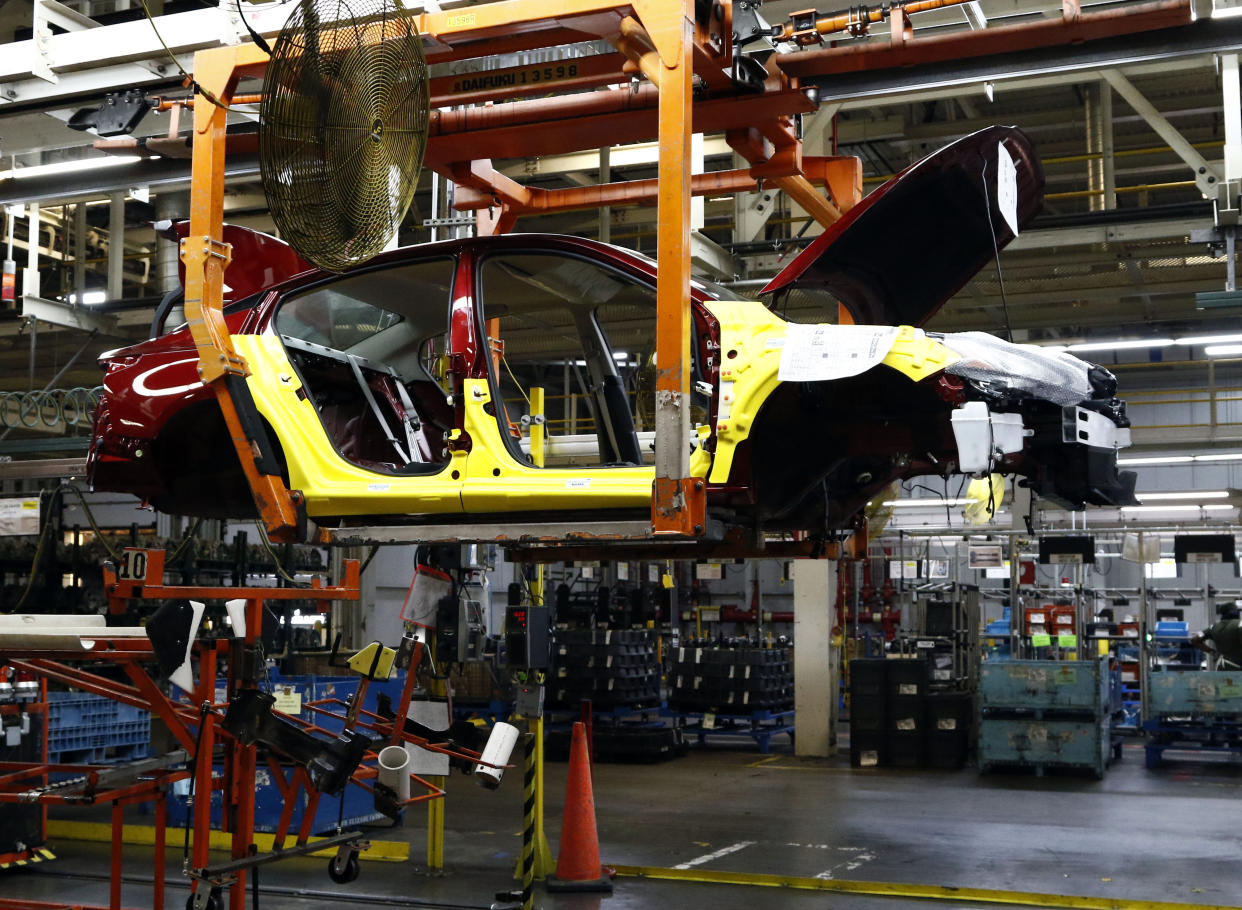New NAFTA could see car production in Canada fall, prices go up: gov't report

The new North American free trade deal may lead to jump in the price of vehicles, as well as a decline of automotive production in Canada, a new report from Ottawa says.
According to an economic impact assessment of the Canada-United States-Mexico agreement released by Global Affairs Canada on Wednesday, new automotive rules in the revamped trade deal could lead to higher production costs and higher prices for consumers.
Under the new deal – known as CUSMA, USMCA or more simply new NAFTA – vehicles must contain at least 75 per cent North American content in order to qualify for duty-free access to the Canadian, American and Mexican markets. That’s up from the current 62.5 per cent threshold prescribed under NAFTA. The new agreement also adds wage requirements and a more complicated process for qualifying automotive, steel and aluminium products for duty-free status.
The Global Affairs report found that about 19.1 per cent of Canadian automotive exports to the U.S. and about 9.6 per cent of automotive exports to Mexico would fail to meet the new rules of origin. That means vehicle and parts producers will have to adjust their sourcing plans to meet the new rules of origin, or alternatively pay most-favoured nation (MFN) tariffs on U.S.-bound products. However, if the cost of sourcing more parts from North America is more expensive than paying the tariffs, manufacturers may opt to pay the tax.
“The application of MFN tariffs or adjustments to meet the new rules of origin could result in higher prices for consumers and overall higher costs of production due to increased sourcing of more expensive parts from within the region,” the report said.
“This would likely affect competitiveness and, as a result, other automotive producing countries outside North America—such as Japan, South Korea, Germany and China—could benefit from this change.”
While the new rules may increase auto part production in North America, it may also likely increase production costs, the report said, which could give non-North American producers an advantage.
“As a result, the economic model projects that Canada’s exports of motor vehicles to the United States would decline by US$1.5 billion relative to the current trade regime under NAFTA, and imports from the United States would decrease by US$1.2 billion,” the report said.
“At the same time, automotive imports from non-North American countries could increase, resulting in a decline of the Canadian automobile production of 1.7 per cent.”
The report compared the economic impact of the new trade deal to a “no-NAFTA” situation – one that was considered unlikely by many – that would have seen the United States withdraw from the trade agreement, something President Donald Trump had threatened throughout the contentious negotiation process.
The Standing Committee on International Trade is currently meeting to discuss Bill C-4, the government’s legislation to enact CUSMA.
Randy Hoback, a Conservative member of parliament on the committee, criticized the authors of the report on Wednesday for comparing the new trade deal to a “no-NAFTA” situation instead of to the existing trade deal.
Other reports have previously asserted that the new trade deal will likely increase production costs as well as the price of North American-made vehicles.
A Scotiabank Economics report from 2018 found that the new administrative requirements and wage costs in the agreement will likely increase the price of North American costs and reduce international competitiveness of the industry, leaving the possibility that production shifts overseas. The U.S. International Trade Commission said the new trade deal would increase jobs in the U.S. automotive sector but lead to a decrease in consumption due to higher vehicle costs.
Download the Yahoo Finance app, available for Apple and Android and sign up for the Yahoo Finance Canada Weekly Brief.

 Yahoo News
Yahoo News 

